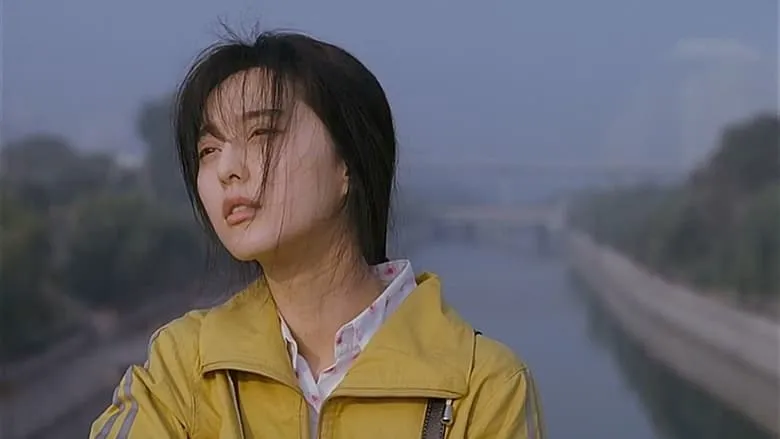“Beijing is so big, why is there no place for someone as small as me?” This poignant line from the Chinese urban drama “Lost in Beijing” (Ping guo, 2007) perfectly encapsulates both the plot and the atmosphere of the film. The characters are all migrants, outsiders regardless of age or wealth, each striving to adapt to the demands of the sprawling metropolis in their own way.

A Soap Opera in the Making
Pingguo, the top masseuse at the “Golden Bowl” salon, keeps her marriage a secret to avoid being fired. She and her husband, an industrial climber, live in a cramped apartment in a slum, their love life, though uninspired, is intensely physical, “like in a porno.” One night, after Pingguo’s friend is dismissed, they drown their sorrows in alcohol. In a semi-conscious state, Pingguo grabs her boss’s crotch. The boss, a womanizer adorned with gold jewelry, misinterprets her actions and takes advantage. Unbeknownst to them, the cuckolded husband witnesses the event through the window. He then begins to stalk the “rapist.”
This plot, initially resembling a sitcom, quickly evolves into a soap opera when Pingguo discovers she is pregnant. The boss’s wife is infertile, and he desperately wants a child. He strikes a deal with Pingguo’s husband: he will buy the newborn for a substantial sum if a blood test confirms paternity. This entire saga unfolds against the backdrop of an indifferent metropolis, where women “allow themselves to be touched” for a new mobile phone, men win fortunes in gambling dens, and the Chinese flag rises above Tiananmen Square.
Censorship and Festival Acclaim
Unsurprisingly, “Lost in Beijing” faced significant censorship issues in China. Nearly 50 scenes were removed, a truncated version was released, and then the film was banned altogether after authorities discovered that pirated copies of the full version were widely available. The producer was barred from filmmaking in China for two years. Ironically, the censorship controversy turned “Lost in Beijing” into a festival hit.
Beyond the Scandal: A Glimpse of Reality
However, the scandal surrounding censorship is not the film’s sole merit. “Lost in Beijing” offers many subtle pleasures. After selling his wife and child for a large sum, the infantile husband amuses himself by building a tower out of the money, topping it with a cup of instant noodles – a metaphor that is perhaps too on-the-nose, but the resulting art object is still pleasing. The film’s best moments are the documentary-style shots (director Li Yu is known in China as a documentarian), capturing life as it is: the human mass filling the streets, drinking, eating, laughing, building, parting ways. The endless urban landscapes, skyscrapers, cranes, the ceaseless gray construction, the swelling metropolis capable of absorbing all the lost and abandoned. Beijing is a gigantic entity bristling with skyscrapers, and like any metropolis, it feeds on people and their emotions. To a European eye, the passions in “Lost in Beijing” are, to put it mildly, excessively melodramatic, but they are muted by the gray landscape and the feeling that all the characters are constantly being watched by a hungry city: a metropolis accustomed to soap opera plots, it will devour much worse.

A Feminist Perspective
In reality, the title “Pingguo,” under which the censored version of the film was released in China, accurately reflects the essence of the film: the heroine herself, drunk, makes advances on the first man she encounters, then decides on her own that she should have an abortion, then decides to keep the child. The ending also rests on her – not entrusting the solutions to important problems to men, who are at best womanizers, at worst, scoundrels. In a sense, it is a very feminist film: the men here pretend, the women get things done. They rape, give birth, leave. All by herself, darling, all by herself.